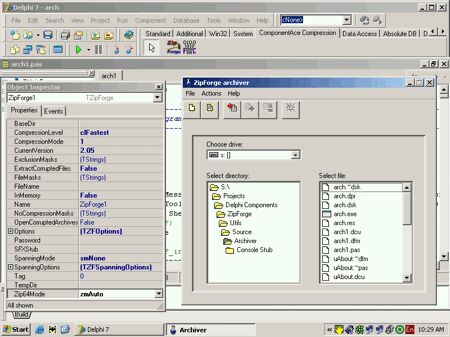Delphi Helps Crash GM
The general thrust of the General Motors Death Watch series—the American automaker is headed for bankruptcy—has been proven right. In all but the technical sense, GM is already bankrupt. It depends entirely on $19.8 billion worth of federal life support (a.k.a. “loans”) to survive. Until June 1. At which point the re-constituted American Leyland will need more federal “investment.” Same again? Sure! More to the point, it’s been over a year since I’ve seen a comment promising “See you at Death Watch 2345!” But I’ve made a lot of mistakes along the way. I was sure that bankrupt former GM parts supplier Delphi would be the final straw. Somehow, the zombie parts maker has kept sufficient distance from the former mothership to avoid delivering the killer blow (which Wagoner may have been snorting). Uh-oh, here’s comes another bullet! And here comes the Presidential Task Force on Automobiles (PTFOA), ’cause Uncle Sam’s favorite automaker can’t spend over $100 million without Steve Rattner’s say so.
Delphi Corp. is likely to miss a deadline today to submit to the U.S. Treasury Department an outline of General Motors Corp.’s role in the auto supplier’s plan to emerge from bankruptcy.
Delphi, GM and the Obama administration’s auto task force held an urgent round of talks Thursday in Washington and will meet again today, but officials said the discussions are likely to continue into next week. . .
GM has allocated $11 billion toward Delphi’s emergence from bankruptcy and spent years negotiating a resolution of all outstanding issues with the supplier, which GM spun off in 1999.
The Detroit News doesn’t provide much analysis of this delay, but you could file this story under “we can’t be bothered with this shit right now.” I mean, $11 billion? Delphi can get in line with all the other creditors who will “feast” on “bad GM” when the PTFOA pulls the plug on The General’s life support v1.
Or you could put this one as “there’s a bad moon rising.” Although the PTFOA’s spinmeisters talk about a quick bankruptcy, it’s clear that a lot of people are going to get a right royal shafting. And they’re not going to take it without fighting for their future against a company that includes them out.
Delphi has been taking drastic actions to cut costs.
Last month, it ended life insurance and health insurance for salaried retirees, saving $70 million a year and it warned that its current shareholders are likely to get nothing.
Earlier this month, a federal bankruptcy judge delayed approval of GM’s purchase of Delphi’s steering business at the request of the Treasury Department.
More by Robert Farago
Latest Car Reviews
Read moreLatest Product Reviews
Read moreRecent Comments
- Honda1 Unions were needed back in the early days, not needed know. There are plenty of rules and regulations and government agencies that keep companies in line. It's just a money grad and nothing more. Fain is a punk!
- 1995 SC If the necessary number of employees vote to unionize then yes, they should be unionized. That's how it works.
- Sobhuza Trooper That Dave Thomas fella sounds like the kind of twit who is oh-so-quick to tell us how easy and fun the bus is for any and all of your personal transportation needs. The time to get to and from the bus stop is never a concern. The time waiting for the bus is never a concern. The time waiting for a connection (if there is one) is never a concern. The weather is never a concern. Whatever you might be carrying or intend to purchase is never a concern. Nope, Boo Cars! Yeah Buses! Buses rule!Needless to say, these twits don't actual take the damn bus.
- MaintenanceCosts Nobody here seems to acknowledge that there are multiple use cases for cars.Some people spend all their time driving all over the country and need every mile and minute of time savings. ICE cars are better for them right now.Some people only drive locally and fly when they travel. For them, there's probably a range number that works, and they don't really need more. For the uses for which we use our EV, that would be around 150 miles. The other thing about a low range requirement is it can make 120V charging viable. If you don't drive more than an average of about 40 miles/day, you can probably get enough electrons through a wall outlet. We spent over two years charging our Bolt only through 120V, while our house was getting rebuilt, and never had an issue.Those are extremes. There are all sorts of use cases in between, which probably represent the majority of drivers. For some users, what's needed is more range. But I think for most users, what's needed is better charging. Retrofit apartment garages like Tim's with 240V outlets at every spot. Install more L3 chargers in supermarket parking lots and alongside gas stations. Make chargers that work like Tesla Superchargers as ubiquitous as gas stations, and EV charging will not be an issue for most users.
- MaintenanceCosts I don't have an opinion on whether any one plant unionizing is the right answer, but the employees sure need to have the right to organize. Unions or the credible threat of unionization are the only thing, history has proven, that can keep employers honest. Without it, we've seen over and over, the employers have complete power over the workers and feel free to exploit the workers however they see fit. (And don't tell me "oh, the workers can just leave" - in an oligopolistic industry, working conditions quickly converge, and there's not another employer right around the corner.)































Comments
Join the conversation
Fundimental difference: - TV spin-offs are usually due to expansion and the desire for additional profits. - Automotive component company spinoffs are due to contraction and the desire to avoid additional costs. To wit: - GM: North American Aircraft, Frigid-Aire, Delphi (Saginaw, Harrison, AC-Rochester, et al.), Inland, Guide, American-Axle, Remy, Allison, Electro-Motive, (Avis?); - Ford: Philco, Aeronutronic, Ford-New-Holland, Visteon (partially re-spun-in), Hertz, Budget, JLR; MC; VCC - Chrysler: Chrysler Defense; Huntsville (to Siemens), Casting (to Metaldyne?), Gulfstream, Lambo (to Audi); Thrifty; This is not only an American phenomenon... - Daimler-Benz: AEG, Fokker Aircraft, Temic, Adtrans, MTU, M-B Lenkung, Mitsubishi, Chrysler, Like the life (& death) process(es) of a star, automotive companies grow past their core, accumulating both automotive and non-automotive assets, burning ever brighter, reaching (red) giant status, but reach an unsustainable and instable state and thus begin periodically ejecting their non-core assets (much as a star ejects globs of its mantle) and consuming the core assets, soon comes cooling, shrinkage, and dwarf-status, and somewhere after they finish coughing-out and consuming their innards**, their corpus-corporations becomes a black holes (and prodigous consumers of government cash.) ** I recognize "coughing & consumption" comes perilously close to mixing the solar metaphor with one of TB (almost as fitting a metaphor).
Oh, and I forgot the financial service units: GM: Motors Acceptance Corp (aka GMAC). Ford: The Associates.